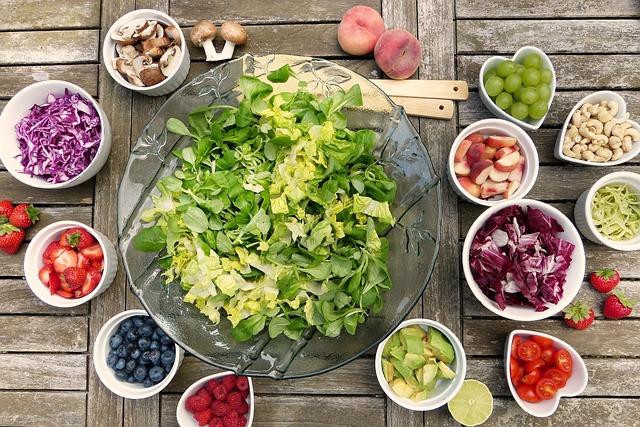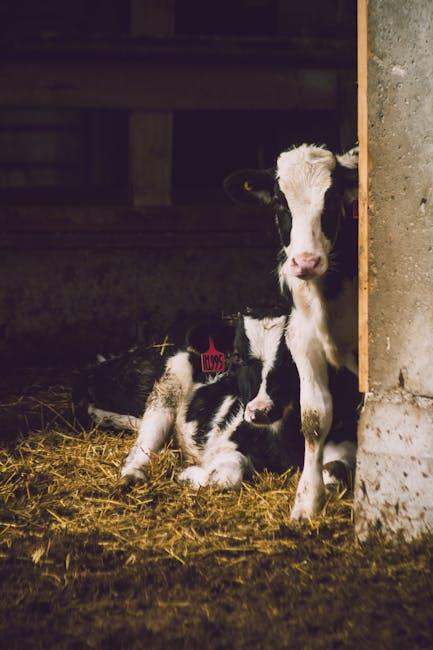In a world where culinary choices abound, the debate between vegetarian and meat-based diets sizzles with intrigue, flavor, and an array of opinions. As the sun rises over bustling farmer’s markets and echoes through the aisles of grocery stores, individuals everywhere face the age-old question: Is a vegetarian diet truly healthier than its meat-based counterpart? This inquiry dives beyond the surface of colorful produce and sizzling steaks, exploring a landscape rich with nutritional insights, cultural influences, and personal values. Join us on a journey that navigates the verdant fields of plant-based living and the robust terrains of carnivorous indulgence, as we unravel the truths and myths surrounding these dietary paths. With a fork in one hand and facts in the other, let us set the table for a balanced exploration of what it means to nourish our bodies and minds in today’s diverse dietary world.
Understanding Nutritional Balance in Vegetarian and Meat-Based Diets
Exploring the nuances of nutritional balance in different diets can be akin to navigating a culinary tapestry. Vegetarian diets, rich in plant-based foods, offer a plethora of benefits such as high fiber intake, lower levels of saturated fats, and an abundance of essential vitamins and minerals. These diets often lead to a reduced risk of chronic diseases like heart disease, diabetes, and certain cancers. Key components of a well-balanced vegetarian diet include:
- Whole grains
- Legumes
- Nuts and seeds
- Fruits and vegetables
In contrast, meat-based diets can provide essential nutrients like vitamin B12, iron, and omega-3 fatty acids, which are sometimes challenging to obtain from plant sources alone. When approached mindfully, a diet that includes lean meats, fish, and poultry can complement a healthy lifestyle by supporting muscle growth and brain function. Vital elements of a balanced meat-based diet include:
- Lean meats and poultry
- Fish and seafood
- Dairy products
- Eggs
Both dietary approaches have their unique advantages, and achieving nutritional balance often involves tailoring dietary choices to individual health needs and lifestyle preferences.
Exploring Health Benefits and Risks of Plant-Based and Meat-Driven Nutrition
In the ever-evolving world of nutrition, understanding the health benefits and risks of different dietary choices is essential. A plant-based diet, rich in fruits, vegetables, grains, and legumes, is often celebrated for its potential to reduce the risk of chronic diseases. Health benefits commonly associated with this diet include:
- Improved heart health due to lower cholesterol levels
- Reduced risk of type 2 diabetes through better blood sugar control
- Enhanced digestion and gut health thanks to high fiber content
Conversely, a meat-driven diet, which can include red and processed meats, offers its own set of nutritional benefits, such as:
- High-quality protein essential for muscle maintenance and growth
- Rich sources of vitamin B12, iron, and zinc
- Improved satiety, which may aid in weight management
While each diet presents unique advantages, it’s crucial to consider potential risks. A plant-based approach might lead to deficiencies in certain nutrients like vitamin B12 and omega-3 fatty acids if not properly managed. Meanwhile, excessive consumption of red and processed meats has been linked to increased health risks, including heart disease and certain cancers. The key to optimizing health lies in balance and ensuring that whichever dietary path you choose, it is well-rounded and tailored to your individual nutritional needs.

Environmental and Ethical Considerations in Choosing Your Diet
When selecting a diet, the impact on the planet and ethical considerations play a crucial role in guiding our choices. A vegetarian diet often boasts a lower carbon footprint compared to its meat-based counterpart. This is primarily because livestock farming is associated with significant greenhouse gas emissions, deforestation, and water usage. By reducing or eliminating meat consumption, individuals can contribute to decreased demand for these resources, promoting a more sustainable environment.
From an ethical perspective, choosing plant-based foods can align with values centered around animal welfare. The ethical argument often revolves around concerns about factory farming, animal rights, and the humane treatment of creatures. Considerations include:
- The reduction of animal suffering and exploitation.
- Supporting agricultural practices that focus on biodiversity.
- Encouraging local and sustainable farming methods.
Balancing personal health with environmental and ethical implications can lead to more mindful eating habits, fostering a diet that supports both individual and planetary well-being.

Practical Tips for Transitioning Between Diets While Maintaining Health
Switching dietary patterns can be a daunting process, especially when aiming to preserve your health during the transition. Here are some practical tips to help ease the shift:
- Gradual Changes: Slowly incorporate new foods into your diet rather than making an abrupt switch. This allows your body to adjust and helps prevent digestive issues.
- Nutritional Balance: Ensure that your new diet provides all essential nutrients. For instance, if you’re transitioning to a vegetarian diet, focus on sources of protein such as legumes, nuts, and soy products.
- Listen to Your Body: Pay attention to how your body responds to the new diet. It’s crucial to recognize signs of nutrient deficiencies or digestive discomfort and adjust accordingly.
- Consult Professionals: Consider speaking with a dietitian or nutritionist who can provide personalized advice and help create a balanced meal plan.
- Stay Hydrated: Regardless of dietary choices, maintaining adequate hydration is essential for overall health and can aid in digestion.
By following these steps, you can smoothly transition between diets while keeping your health intact and enjoying the benefits each dietary approach has to offer.
The Conclusion
In the grand tapestry of dietary choices, the question of whether a vegetarian diet is healthier than a meat-based one remains a vibrant thread, woven with individual needs, cultural backgrounds, and personal philosophies. As we close this exploration, it’s clear that the journey to optimal health is not a one-size-fits-all path. Both vegetarian and meat-based diets offer unique benefits and challenges, and the key lies in making informed decisions tailored to one’s own body and lifestyle.
Ultimately, the heart of the matter is balance, a dance between nutrients and preferences, ethics and enjoyment. Whether your plate is filled with colorful vegetables or a mix of plants and meats, the goal remains the same: to nourish both body and soul. As science continues to unfold the mysteries of nutrition, let curiosity guide you, compassion inform you, and health inspire you. Bon appétit to the diverse world of dining, where every meal is a step on your personal journey to well-being.




